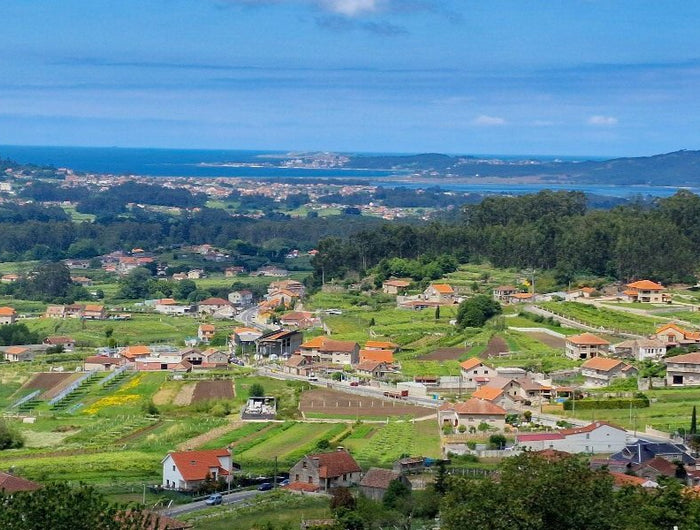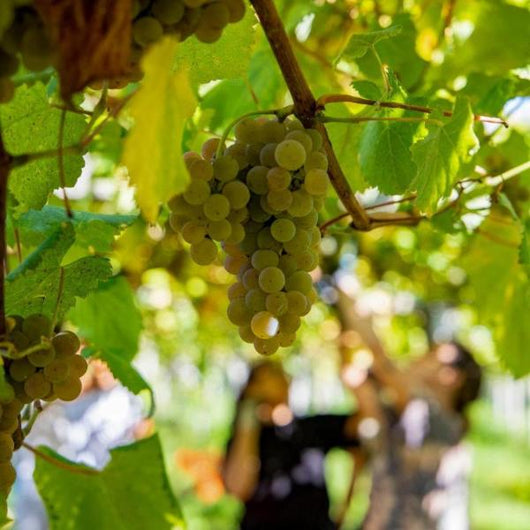

Nanclares and Prieto
The Nanclares y Prieto winery has a history that began in the 1990s when Alberto Nanclares, originally an economist in Madrid, moved to Rías Baixas, drawn by his passion for sailing. Little by little, Alberto began to work the vineyard that surrounded his house in Castrelo. In 1997, he transformed his garage into a small winery and began to make his own Albariño. In 2001, he acquired more vineyards in the Salnés valley and officially became a winegrower and producer.
In 2015, in response to increasing demand for his wines, especially in the United States, Alberto formed a partnership with Silvia Prieto, a young winemaker with whom he shares work in the vineyard and the winery. Together, they follow a philosophy of minimal intervention, separate fermentations with indigenous yeasts and a moderate use of sulfites, bottling without fining to preserve the unique character of each wine.
Nanclares and Prieto cultivate five hectares of Albariño in Pradenda, Cambados and Castrelo. Their vineyards are planted mainly on sandy soils with some clay plots. The wines reflect the different expressions of Albariño, starting with labels such as Tempus Vivendi and Dandelion, followed by Nanclares, which is fermented in stainless steel and large French oak barrels.
Other notable wines include O Fogar do Castriño, Pensares de Alberto and Crisopa, the latter made in a traditional way with grape stomping and fermentation with skins. In addition, in Ribeira Sacra, they produce reds such as Miñato da Raña, a blend of Mencía and Garnacha Tintorera, and Penapedre, which comes from century-old vines.
The winery stands out for its commitment to sustainability and respect for the natural environment. They practice organic and biodynamic viticulture, avoiding the use of additives and focusing on techniques that respect both the grape and the environment.
We want to make sure you enjoy our wines responsibly. Please confirm that you are at least 18 years old to enter Vinnatura. By entering our store, you agree to our Terms of Service .
You are not old enough to visit the store yet.